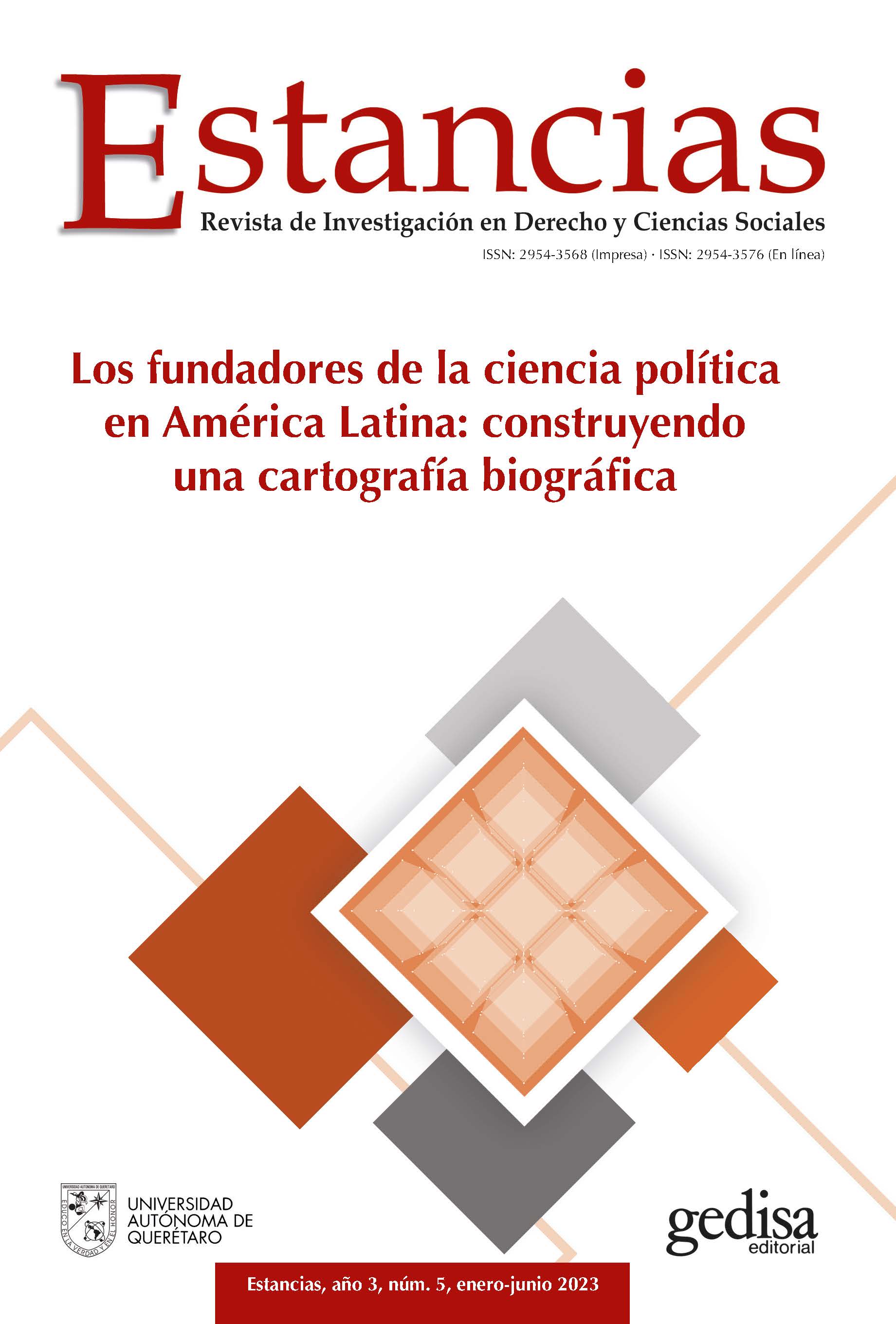Marx, the First Analyst of Populism
Main Article Content
Abstract
This essay presents, in the first place, a synthesis of what populism is, and its variants. The question that jumps immediately, is, who was the first author who examines populism? The answer, surprising as it may seem, is Karl Marx. Well then, Marx scrutinized a power-hungry demagogue in minute detail in the book The Eighteenth Brumaire of Louis Bonaparte. There, the Trier thinker mocks the fact that the person in question was obsessed with imitating the glories of his uncle; what came out was a cartoon. Based on the study of The Eighteenth Brumaire of Louis Bonaparte, here are the fundamental components of a populism ruler. The aforementioned began winning the elections as president of the republic, but immediately boycotted the rule of law and the division of powers while seducing the people and the army to finally carry out the coup on December 2, 1851. Soon after he proclaimed himself emperor. Luis Bonaparte betrayed the democratic republic: launched a political and social strategy that degraded that system of government to implement a personal regime based on “the people” to get rid of the rule of law and the National Assembly. The tyranny of the majority transformed into a simple and plain tyranny. He wanted to establish an empire, a fact that even extended to Mexico with the so-called French Intervention (December 8, 1861 - June 21, 1867). His excesses ended with the humiliating defeat in the Franco-Prussian War (July 19, 1870- May 10, 1871). In The Eighteenth Brumaire of Louis Bonaparte, we find the characteristic features of the populism of our time: the presence of a charismatic leader acting in the name of the people who, however, behind the scenes has his personal project of power; the institutions of the republic, that is, the rule of law, the division of powers, political representation, the party system, the right to vote, freedom of the press, the right to dissent, are corroded to give way to the concentration of power in an autocrat. The evildoer counts on the support of the army and the lumpenproletariat; he bends the wills of the aristocracy, the bourgeoisie, and the petty bourgeoisie using concessions of coercion. Finally, when he sees fit, he changes the form of government according criteria of convenience and opportunity. In the case of Louis Bonaparte, it was from republic to empire.
Article Details

This work is licensed under a Creative Commons Attribution-NonCommercial-ShareAlike 4.0 International License.
How to Cite
References
Berlin, I. (1981). Pensadores rusos. Madrid: Alianza Universidad.
Bobbio, N. (1990). Saggi su Gramsci. Milán: Feltrinelli.
Fernández Santillán, J. (2018). Populismo, democracia y globalización. Ciudad de México: Fontamara.
Gramsci, A. (1975). Quaderni del Carcere, vol. II, Quaderno 7 y 24. Turín: Einaudi.
Habermas, J. (1991). The Structural Transformation of the Public Sphere. Cambridge: MIT Press.
Judis, J. (2016). The Populist Explotion. Nueva York: Columbia Global Report.
Kakutani, M. (2018). The Death of Truth. Nueva York: Tim Duggan Books.
Laclau, E. (2005). On Populist Reason. Londres: Verso.
Levitsky, S., y D. Ziblatt (2018). How Democracies Die. Nueva York: Crown.
Marx, K. (1980). Prólogo a la Contribución de la crítica de la economía política. En K. Marx y F. Engels. Obras escogidas, tomo I, Moscú: Editorial
Progreso.
Marx, K. (2018). El dieciocho Brumario de Luis Bonaparte. Madrid: Alianza.
Marx, K. (1980). Las luchas de clases en Francia de 1848 a 1850. En K. Marx y F. Engels. Obras escogidas, tomo I. Moscú: Progreso.
McMath, R. C. Jr. (1993). American Populism. A Social Story (1877-1898). Nueva York: Hill & Wang.
Moffitt, B. (2020). Populism. Cambridge: Polity.
Müller, J. W. (2016). What is Populism? Philadelphia: University of Pennsylvania.
Norris, P., y R. Inglehart (2019). Cultural Backlash. Londres: Cambridge University Press.
Pinker, S. (2011). The Better Angels of our Nature. Nueva York: Penguin Books.
Revelli, M. (2017). The New Populism. Londres: Verso.
Taggart, P. (2000). Populism. Buckingham-Philadelphia: Open University Press.
Tocqueville, A. (1982). El antiguo régimen y la revolución, Tomos I y II. Madrid: Alianza Editorial.
Urbinati, N. (2019). Me the People. Cambridge: Harvard University Press.
Weber, M., (2016). La política como vocación. En M. Weber. El político y el científico. Ciudad de México: Colofón
